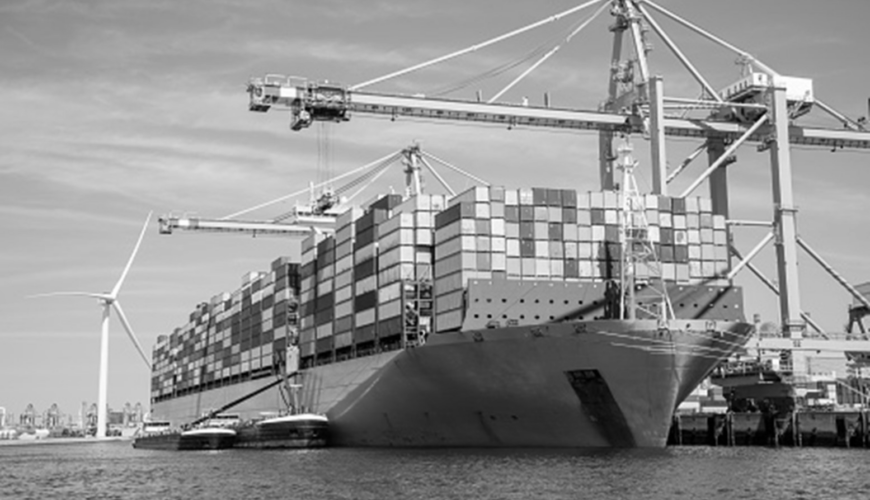Detention and demurrage charges can significantly impact a business’s logistics costs, but they are not unavoidable. In the global supply chain and shipping industry, detention and demurrage charges are crucial elements that can significantly affect the cost structure for businesses importing and exporting goods. While often necessary to encourage efficiency and ensure the smooth movement of goods, these fees can be a burden if not properly managed. Understanding the definitions of detention and demurrage charges, their causes, and effective strategies for mitigating these costs is essential for companies aiming to optimize their logistics operations and maintain profitability.
What Are Detention and Demurrage Charges?
Demurrage refers to the charges imposed on a consignee or consignee agent when cargo remains in the port beyond the agreed-upon free time. In shipping, free time is when cargo can be stored without additional fees. Once the free time has expired, the consignee is typically charged for the extra time the cargo occupies the terminal or port facilities.
Demurrage charges encourage timely clearance of goods from the port. When goods are not picked up or processed within the allowed free time, the charges help compensate the port or terminal operator for the additional space usage and associated costs.
Demurrage charges are commonly applied at container terminals and rail depots but can also be used in situations involving bulk goods or other forms of cargo that require storage.
Detention charges, on the other hand, are applied when containers or equipment (such as containers or chassis) are not returned to the carrier within a specified timeframe after they have been delivered to the consignee. The cargo may already have been cleared from the terminal, but the container or equipment is held longer than agreed.
These charges are typically imposed by shipping lines or carriers and incentivize businesses to return containers or equipment promptly. Since containers are a finite resource and shipping lines rely on their swift turnover to facilitate new shipments, delays in returning containers can result in capacity issues, impacting the broader logistics and shipping network.
Key Differences Between Detention and Demurrage
While detention and demurrage are both time-related charges, the key difference lies in the object of the charges:
- Demurrage: This applies to cargo stored in the port or terminal beyond the agreed free time.
- Detention: This applies to the equipment (typically containers) when not returned to the carrier within the agreed period.
Additionally, the parties responsible for paying these charges differ in some cases. Demurrage is usually the responsibility of the consignee or consignee’s agent. At the same time, detention fees are typically levied on the consignee but can sometimes also fall on the shipper or importer, depending on the contractual arrangements.
Factors Contributing to Detention and Demurrage Charges
Several factors can lead to the imposition of detention and demurrage charges, often arising from inefficiencies or unexpected delays. These factors include:
- Port Congestion and Delays: Delays at the port, whether due to congestion, labor strikes, customs issues, or adverse weather conditions, are common causes of detention and demurrage. When ports are congested, goods take longer to clear customs or be processed, causing demurrage fees to accrue. Similarly, delays in returning containers to the carrier can lead to detention charges.
- Inefficient Supply Chain Operations: Slow inventory management, delayed paperwork, or logistical bottlenecks can lead to unnecessary dwell time at the port, ultimately resulting in demurrage charges. Similarly, if containers are not promptly unloaded or returned, detention charges can arise.
- Limited Storage Space at Terminals: When terminals or ports reach their maximum storage capacity, they may charge demurrage fees to discourage excessive storage of containers or cargo. This is particularly common during peak shipping periods, such as holidays or significant sales events when shipping volumes spike.
- Documentation and Customs Delays: Customs clearance is another frequent cause of delays in clearing goods. If the necessary paperwork is incomplete or there are discrepancies in declarations, goods may be held in customs, resulting in demurrage charges. Similarly, delays in submitting documents or waiting for customs approval can prevent containers from being returned to the carrier on time, leading to detention charges.
- Transportation Bottlenecks: Delays in inland transportation, such as waiting for trucks or railcars to pick up goods, can increase demurrage and detention charges. When transportation providers fail to arrive promptly or encounter delays, containers remain at the port or terminal longer than expected.
- Shipper or Consignee Mismanagement: Poor communication between shippers, consignees, and carriers can also result in unnecessary delays, which trigger detention and demurrage fees. For instance, if a consignee is unaware of a shipment’s arrival, they may fail to pick up the goods on time, resulting in demurrage. Similarly, a shipper who doesn’t plan for the timely return of a container may incur detention charges.
Impact of Detention and Demurrage Charges
The financial impact of detention and demurrage charges on businesses can be substantial. These costs are usually calculated per day and can escalate rapidly if the delays are prolonged. The effects of these charges can include:
- Increased Operating Costs: The more time a container spends at the port or in the consignee’s possession, the higher the accrued fees. This directly affects a company’s bottom line, making goods more expensive to move and ultimately reducing profit margins.
- Reduced Profitability: If a company frequently incurs detention and demurrage charges, it may significantly reduce profitability. These costs, if not managed effectively, can add up quickly and erode the savings expected from the transportation of goods.
- Damage to Business Relationships: Constant delays and failure to meet contractual deadlines due to detention and demurrage charges can harm business relationships with suppliers, customers, and shipping partners. Unhappy stakeholders may lead to lost contracts or reduced business opportunities.
- Reputational Damage: Repeated delays and inefficiencies caused by detention and demurrage charges can harm a company’s reputation in the marketplace. Partners and customers may perceive a business as unreliable, negatively affecting future sales and collaborations.
Strategies to Reduce Detention and Demurrage Charges
While detention and demurrage charges are sometimes unavoidable due to factors outside a company’s control, businesses can employ several proactive strategies to minimize their impact. These strategies focus on improving logistics efficiency, communication, and planning.
Streamline Documentation and Customs Processes
One of the most effective ways to reduce demurrage charges is to ensure that all documentation and customs clearance processes are handled smoothly and efficiently. Delays in customs clearance can often be attributed to incomplete or incorrect documentation. Businesses can reduce the risk of paperwork-related delays by adopting digital tools like Electronic Data Interchange (EDI) systems.
Best practices:
- Ensure that all paperwork, including commercial invoices, packing lists, and bills of lading, is completed accurately and in advance.
- Automated tools or software track shipments, customs statuses, and other relevant real time information.
- Work closely with customs brokers and agents to expedite the clearance process and address any potential issues before they arise.
Enhance Supply Chain Visibility
Improving visibility across the supply chain allows companies to anticipate potential delays and take corrective actions early. Real-time tracking of cargo, containers, and equipment can help businesses understand where bottlenecks are occurring and identify ways to expedite processes.
Best practices:
- Invest in transportation management systems (TMS) and supply chain visibility platforms that provide real-time updates on the status of shipments and containers.
- Regularly monitor port conditions, customs delays, and other potential disruptions.
- Maintain close communication with carriers, logistics providers, and other stakeholders to stay informed of any changes in shipping schedules.
Plan for Timely Pickup and Delivery
Ensuring timely pickup and delivery of goods is crucial for avoiding detention and demurrage charges. By establishing a clear and efficient process for receiving shipments, businesses can minimize the time cargo sits in the port.
Best practices:
- Schedule regular pick-up appointments and deliveries to avoid the risk of delays.
- Work with reliable transportation providers who can guarantee timely delivery.
- Avoid peak shipping times when ports may become congested, leading to longer dwell times.
Negotiate Flexible Free Time and Detention Terms
Negotiating favorable terms with shipping carriers and terminal operators can help reduce the likelihood of detention and demurrage charges. This includes negotiating for longer free time at the port and more flexible detention terms.
Best practices:
- Build long-term relationships with carriers and negotiate contract terms with adequate free time and detention limits.
- Look for opportunities to negotiate reduced rates for detention and demurrage fees in the event of unavoidable delays.
Use Technology to Optimize Container Management
Efficient container management is critical to minimizing detention charges. Using technology to track and manage container movements, businesses can ensure that containers are returned promptly and avoid incurring detention fees.
Best practices:
- Use container management systems to track container usage and ensure equipment is returned on time.
- Plan container returns well in advance to avoid delays in returning containers to the shipping line.
- Monitor container turnaround times and optimize the use of available equipment.
Outsource to Experienced Logistics Partners
If managing detention and demurrage charges in-house becomes overwhelming, outsourcing logistics functions to experienced third-party providers can help streamline operations and reduce delays. Experienced logistics partners understand the nuances of the supply chain and can navigate issues such as port congestion, customs delays, and transportation bottlenecks.
Best practices:
- Select logistics providers with a strong track record of managing detention and demurrage issues.
- Work closely with logistics partners to ensure timely and efficient movement of goods through ports and terminals.
Monitor Performance and Continuously Improve
Regularly reviewing and analyzing logistics performance can help businesses identify recurring issues that lead to detention and demurrage charges. By continuously improving operational efficiency, companies can reduce the risk of incurring unnecessary costs.
Best practices:
- Set up key performance indicators (KPIs) to monitor detention and demurrage performance.
- Conduct periodic audits of logistics processes to identify bottlenecks or inefficiencies.
- Implement continuous improvement strategies, such as lean management or Six Sigma, to eliminate waste and improve process efficiency.
Detention and demurrage charges can significantly impact a business’s logistics costs, but they are not unavoidable. By understanding the causes of these charges and implementing proactive strategies such as improving documentation, enhancing supply chain visibility, and optimizing container management, businesses can minimize the impact of these fees. Additionally, maintaining strong relationships with carriers and logistics partners, negotiating favorable contract terms, and continuously improving logistics operations will help mitigate the risk of detention and demurrage charges, ensuring a more efficient and cost-effective supply chain.


